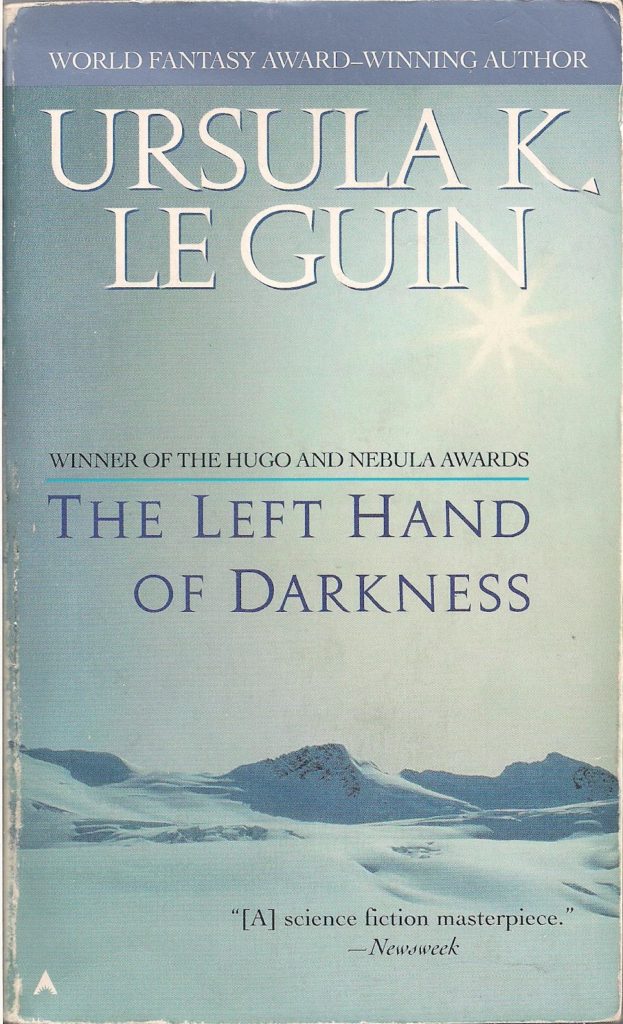Once in a while I like to revisit things I hated when I was younger, usually in the form of either books or food. Sometimes I leave with my aversion even more fully cemented (still hate ham, still hate Nightwood) and sometimes I discover that my palate has sophisticated in the intervening years.
Ursula K. Le Guin was one of those authors, to my shame as a science fiction fan. My first encounter with her was when I was too young and too impatient to really appreciate the complexity of what she was doing: I had to read The Tombs of Atuan for an extracurricular reading event in middle school. I didn’t enjoy the experience, to the point where I gave up midway through the book—unusual for me, especially at that age. A few years later I gave The Dispossessed a try. It was a fancy edition from the Science Fiction Classics series put out by Easton Press, with leather binding and shiny gold trim. Despite the luxurious trappings, once again my brain wasn’t having it.
But this tale has a happy ending! Well into adulthood, the Austin Feminist Sci-Fi Book Club picked The Dispossessed and I liked it just fine. Maybe my prefrontal cortex just needed to finish developing. Who knows.
And here’s the happy postscript to the above happy ending. The two founding members of the Austin Feminist Sci-Fi Book Club were married in 2021 and, as a sort of long-distance wedding favor, sent all of their originally intended guests random science fiction paperbacks that one or both of them had really liked. This is how I came into possession of The Left Hand of Darkness.
There is a lot of intrigue in The Left Hand of Darkness, and from what I recall in The Dispossessed as well, and maybe that’s what kept my brain from taking to Le Guin to begin with. I’m a simple creature, naive and without guile. All of the political maneuvering in both books is lost on me, but I can still enjoy the complexity of the societies Le Guin creates, whether it’s anarchist collectives of Anarres or the ambisexual population of Winter. And considering our shifting and broadening cultural understanding of gender, The Left Hand of Darkness is a particularly apt example to revisit right now.


One thought on “The Left Hand of Darkness”